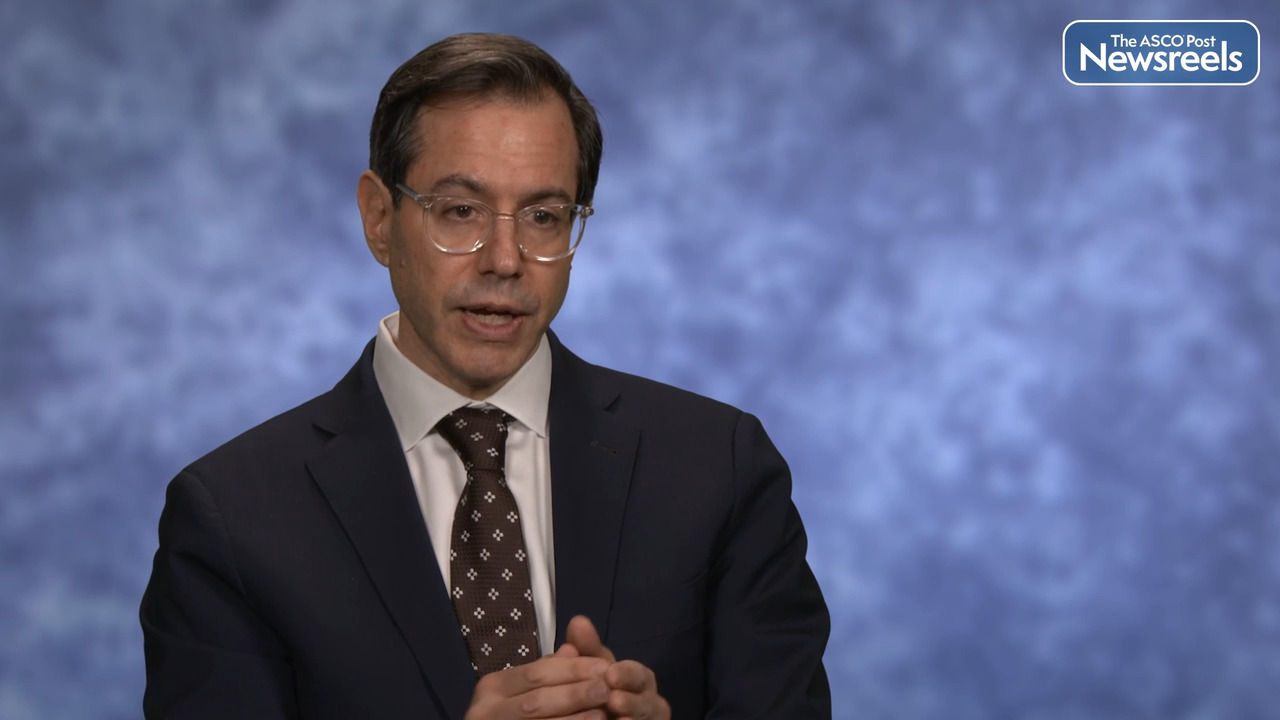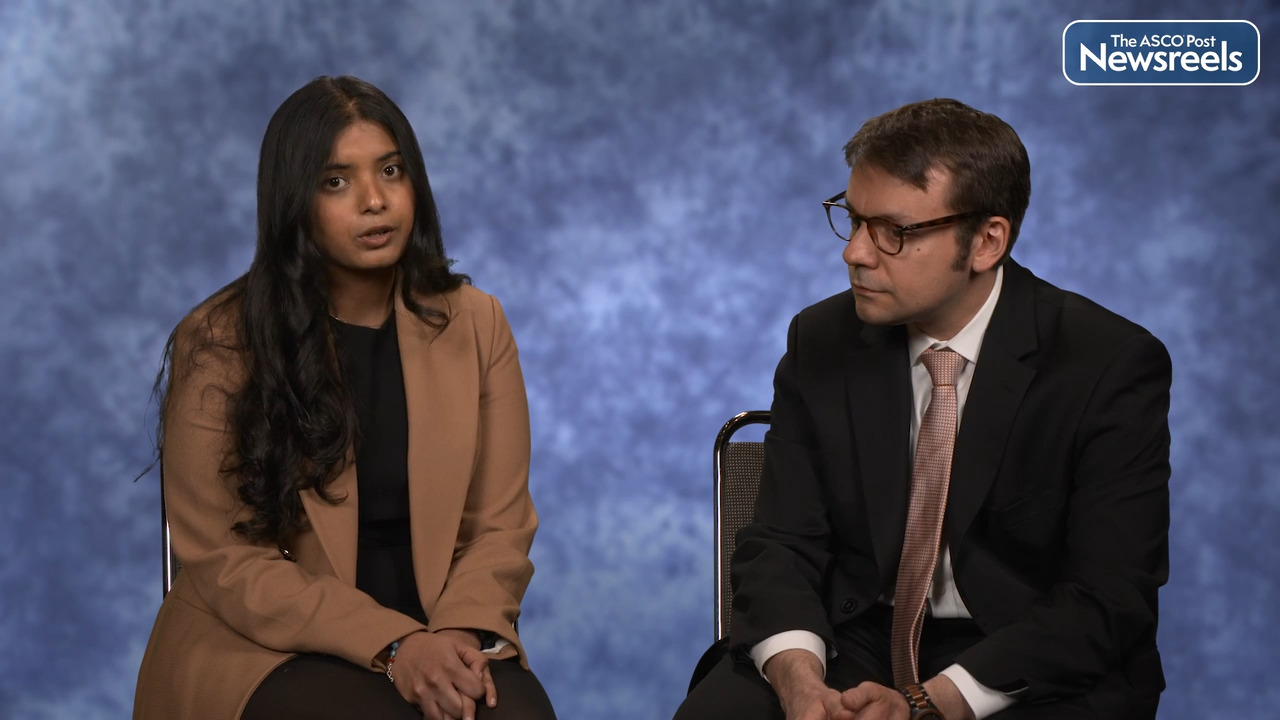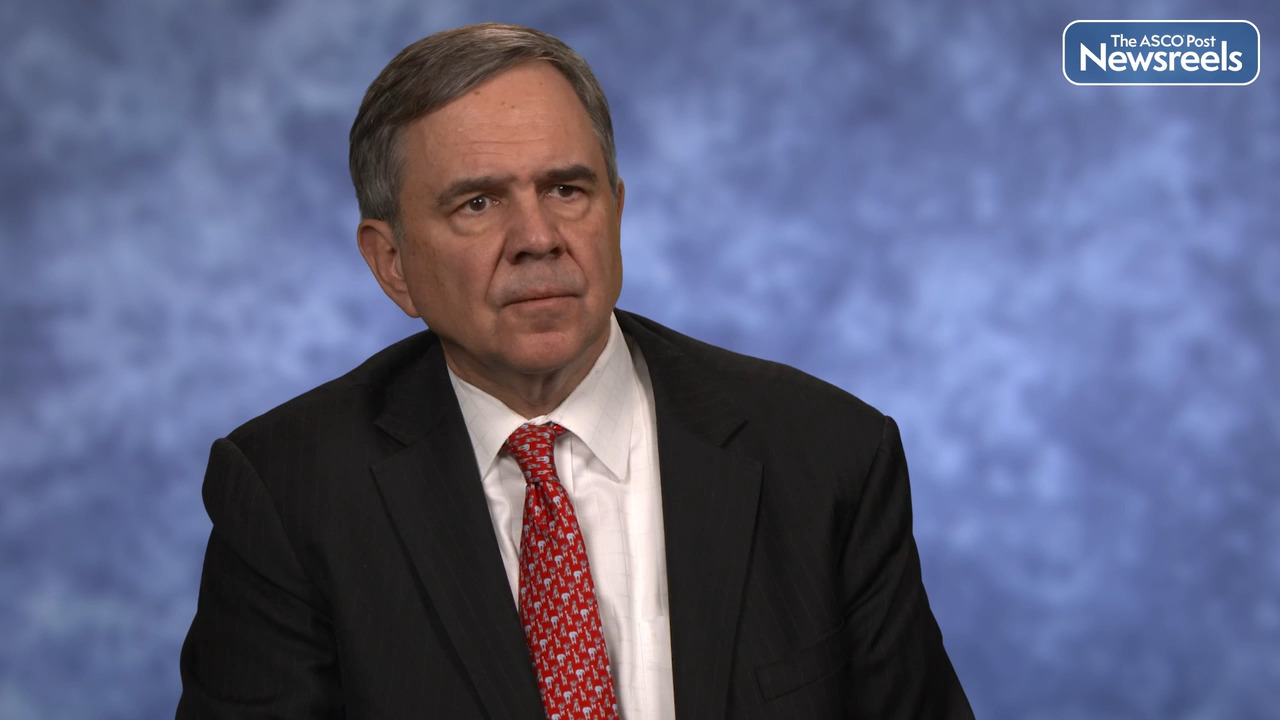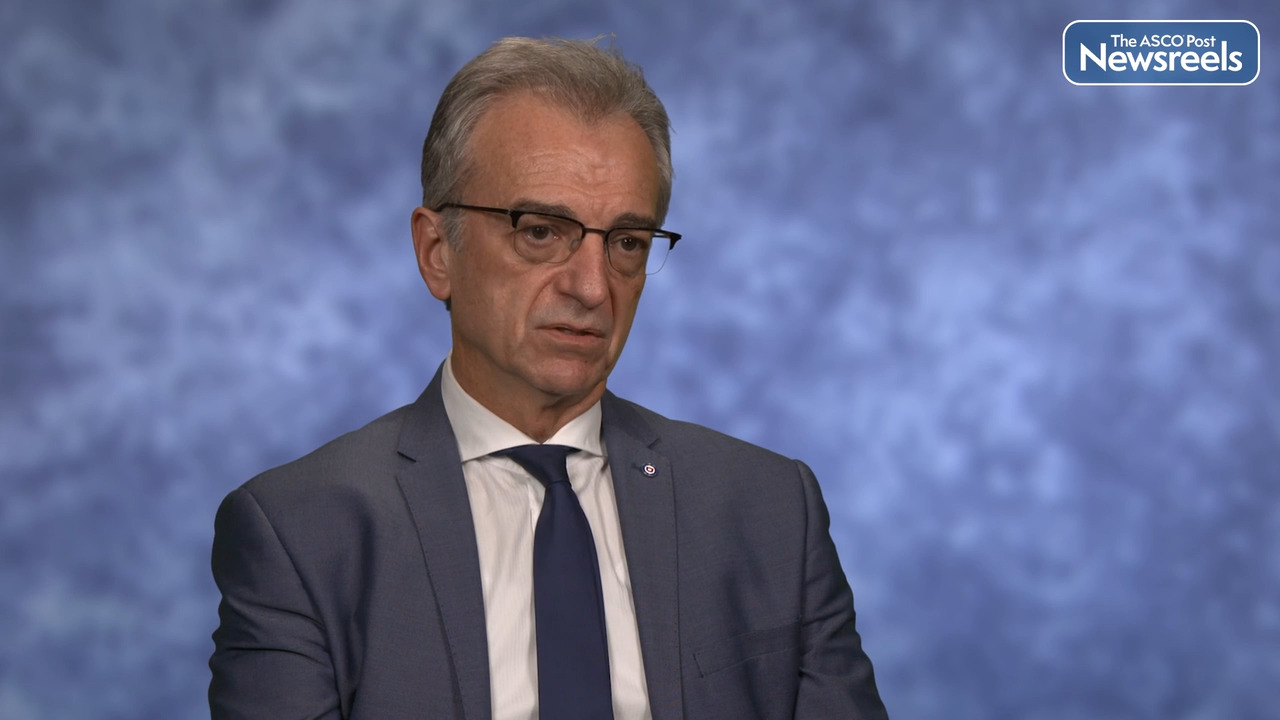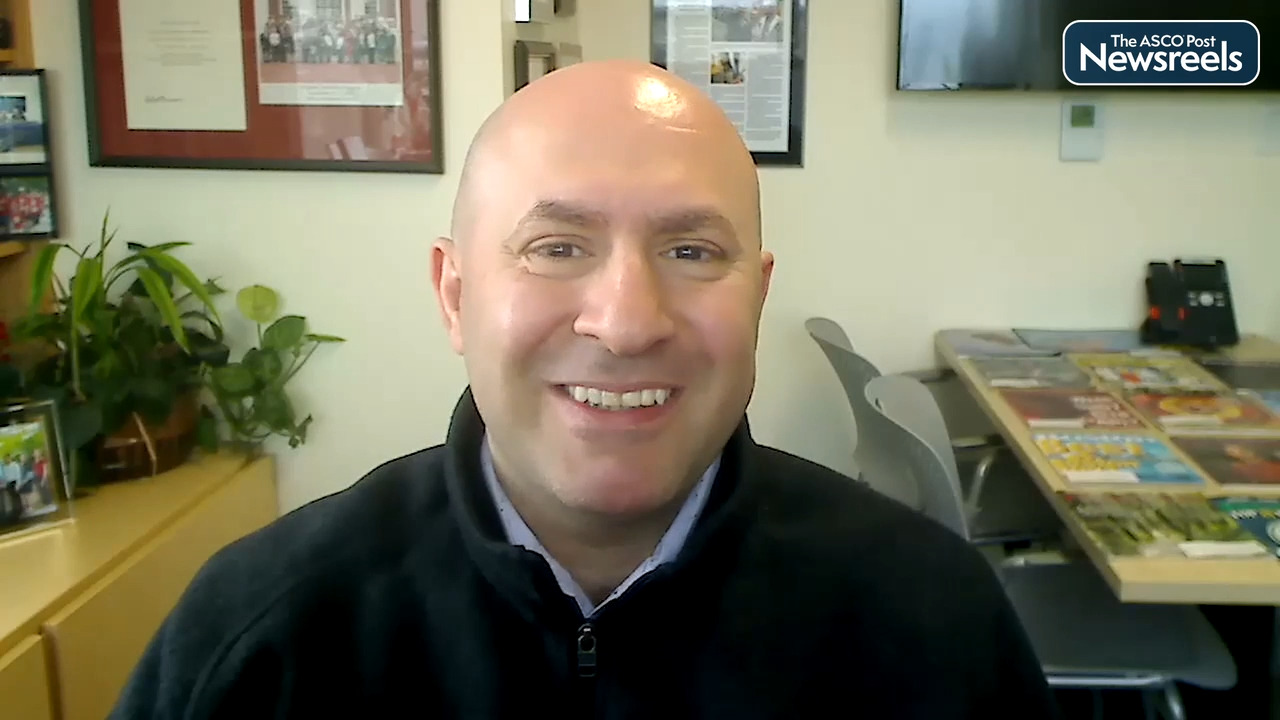Transcript
Disclaimer: This video transcript has not been proofread or edited and may contain errors.
Standard of care for renal cell carcinoma is combination therapy, meaning in patients with clear cell RCC, we have access either to a combination of doublet IO, namely nivolumab plus ipilimumab, or a combination of VGF targeting plus an immune checkpoint, such as axitinib, pembrolizumab, cabozantinib, nivolumab, or lenvatinib, pembrolizumab as well. Right now, what we don't know is what we should do in patient who failed first line therapy, meaning having disease progression under first line therapy. The purpose of CaboPoint study that has been presented at ASCO GU meeting 2023 is to investigate cabozantinib activity after first line combination failure.
The study has been designed to assess activity and safety of cabozantinib single agent, so it's a Phase II, a non-randomized Phase II with two cohorts. Cohort A, patient who had failed nivolumab plus ipilimumab and Cohort B, patient who had failed VGF plus TKI regimen. What has been presented at this meeting is the interim analysis of CaboPoint study. This pre-plan analysis was designed to be performed when 80% of cohort bay had been enrolled and for which we had more than three months follow-up. So 88 patients are part of this analysis.
Primary endpoint is response rate, and the key message is that with cabozantinib single agent, we are able to reach a response rate of almost 30% divided in 32% in Cohort A and 25% in Cohort B. Of course, there was no new safety signal with cabozantinib single agent. This study is important because it is the first time we have cabozantinib pure second-line data after a doublet with an IO-based first-line regimen. What is needed now is to know with further follow-up the PFS and overall survival within this study, and that will be the subject of further analysis.
What we also would like to know, is there anything we should add on top of cabozantinib? And that's the topic of the CONTACT-03 study that is still pending to know if there is an added value of sustained PD-L1 inhibition, for instance. So to summarize, CaboPoint is the first prospective study of cabozantinib as a pure second line after combination therapy in first line, showing you response rates of 30% for a single-agent TKI. And it means our patient, including those who did progress under first line, should be offered a second line therapy.
